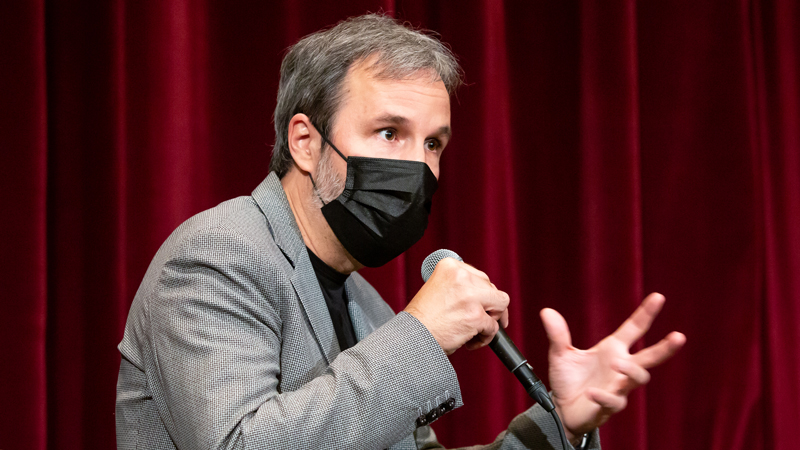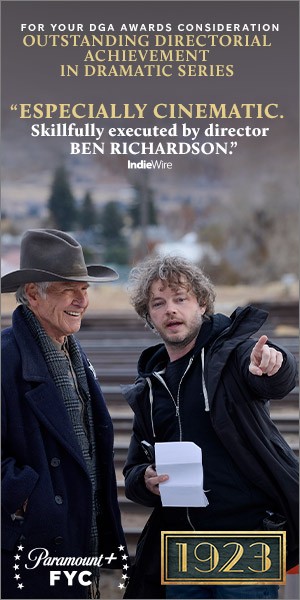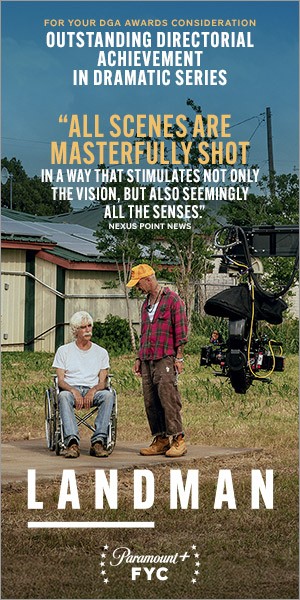Q&A photos by Marcie Revens (New York) & Shane Karns (Los Angeles) - print courtesy of Warner Bros.
A classic science fiction tale gets a new life on the big screen in Director Denis Villeneuve’s epic, Dune.
Based on Frank Herbert's novel, Villeneuve’s film tells the story of Paul Atreides, a brilliant and gifted son of a noble family who travels to the most dangerous planet in the universe to ensure the future of his family and his people and find his ultimate destiny.
On October 9, after the DGA membership screening in New York, Villeneuve discussed the making of Dune during a Q&A moderated by Director Darren Aronofsky (Mother!). He also spoke about the film with Director Christopher Nolan (Tenet) following the Los Angeles screening on October 10.
During the Los Angeles conversation, Villeneuve revealed how the massive scope of the film forced him to make a change in his usual directorial process. “For the first time of my life I decided to work with more than one unit because otherwise I would not be here tonight because it was too much work to do in too little time. I learned how to direct multiple units. It’s not the best way to work, I love to work with one camera, one tripod, but I didn’t have the choice, I had to do it this way.” He also revealed how his previous film, Blade Runner 2049, prepared him for the task of making an effect-laden film. “It’s all about light at the end of the day. I had a master class on how to light a shot doing Bladerunner with Roger Deakins. I spent a year listening to him on every shot and that helped me tremendously to direct the team here.”
Villeneuve’s other directorial credits include the feature films, Blade Runner 2049, Sicario, Enemy, Prisoners, Maelstrom, Incendies and Story of Your Life; as well as the short films 120 Seconds to Get Elected, Next Floor and Rated R for Nudity. He was nominated for the DGA Award for Outstanding Directorial Achievement in Feature Film and the Academy Award for Best Achievement in Directing for his 2016 feature, Arrival. Villeneuve has been a DGA member since 2012.
You can listen to Villeneuve's Q&A by clicking the podcast episode embedded below. You can find more DGA podcast episodes here.














